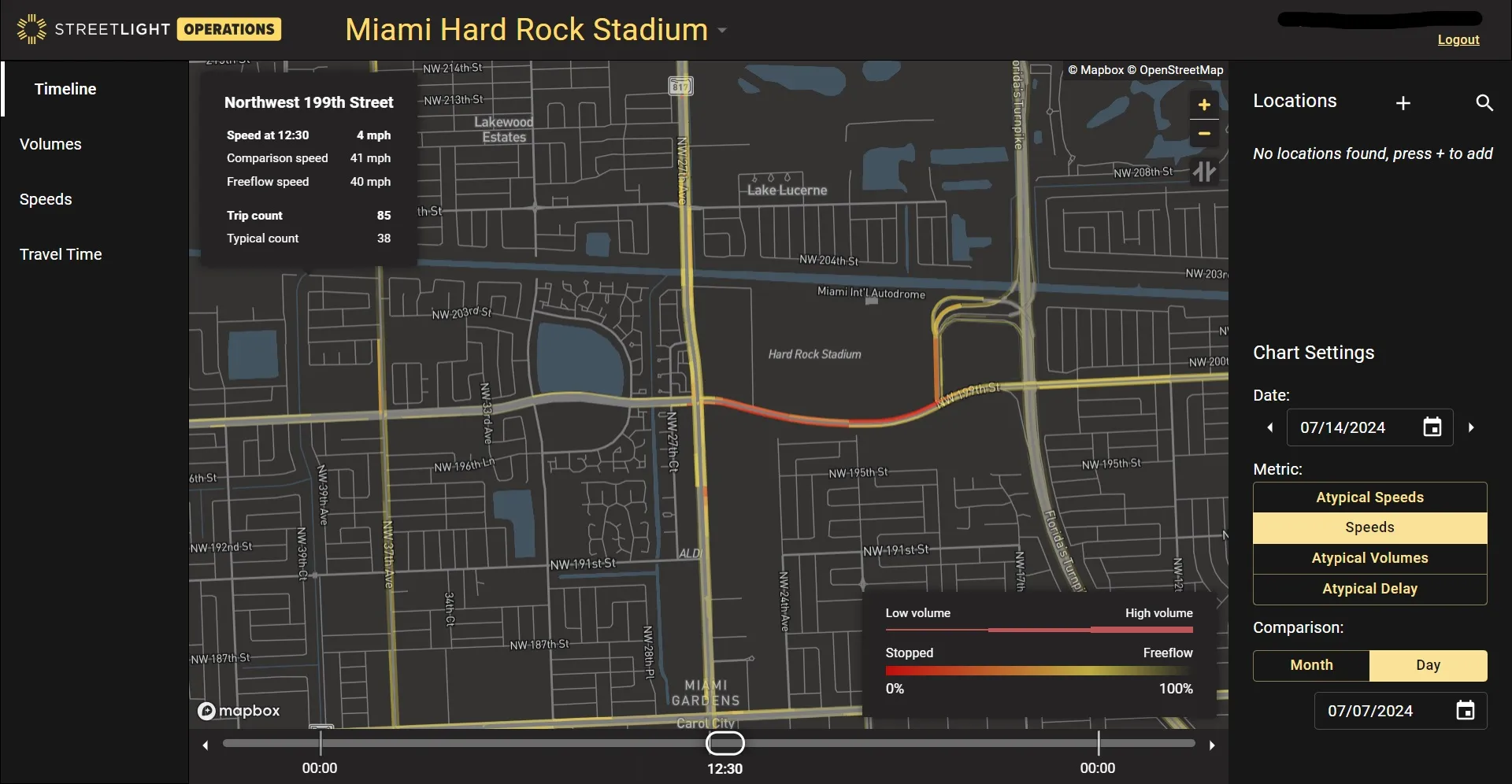
Driving associated with the gig economy has the capacity to both worsen – and ease – congestion depending on a variety of factors, according to new research from StreetLight Data.
The company says this is because ‘gig driving’ – for example, by drivers of ride-sharing services such as Uber, Lyft and AmazonFresh - has different impacts depending on existing traffic, location, time of day and transit or bike availability. The data firm has used its own metric – gig mode share – to highlight this phenomenon in a specific area: the Miami-Dade region of Florida.
“Depending on context, a road with a higher ‘gig mode share’ can have a positive, negative, or neutral correlation with congestion,” StreetLight Data says. “The contexts explored in the analysis included time of day, proximity to a major transit centre, road class (highway/non-highway), land use and density.”
It found that gig mode share is higher in certain parts of town, notably tourist- and hotel-heavy areas such as Miami Beach, downtown Miami and at ramps into Miami-Dade Airport used by services such as Uber.
“We see morning and evening peaks on weekdays,” the company explains. “However, gig share goes up on evenings, late night and weekends. These are times with low congestion, and a few extra gigs won’t make a big difference. As a result, the impact of gig share on congestion does not really vary by time of day or day of week.”
In general, gig driving is a fairly consistent share of highway driving around Miami, the company found. “Highways with higher gig shares have a very slight increase in congestion (especially on weekdays). On non-highway roads, we see six times that impact. Thus, we find that, in general, gig mode share has more variability, and more of an impact, on congestion, on non-highway roads.”
The results were perhaps most interesting – and even counter-intuitive – in commercial, rather than residential, areas. “In Miami-Dade, in the very dense neighbourhoods a high share of gig is correlated with a lower congestion. However, in the more standard commercial areas, gig is correlated with higher congestion. We interpret this to mean that in Miami there’s a threshold of activity density above which gig associated with less congestion, and below which gig is associated with more congestion.”
StreetLight Data is alive to the possibilities of analysis in this space – a complicated story where granular analysis can help promote understanding for city planners and users. While these figures looked at variation of gig driving across one region in the present, other researchers have looked at changes over longer periods of time (for instance, before and after gig hit a city) and this is something the company plans to explore in the future.
“In addition, we can look into the context of demographics, rent prices and transit ridership,” it concludes. “We can split out gig delivery from gig ride-share. We want to measure the way gig driving interacts with social justice, safety, climate and vehicle miles travelled - not just congestion.”
The company sees itself as being at the beginning of a conversation. There’s a lot still to say.










